Vitamin B3 (Niacin): Heart Health and Cholesterol Regulation
Vitamin B3, commonly known as niacin, is a water-soluble B-vitamin essential for various biological processes. It plays a pivotal role in converting food into energy, supporting cellular function, and maintaining overall health. Perhaps most notably, niacin has earned its reputation as the "heart vitamin" for its ability to regulate cholesterol levels and promote cardiovascular health.
Key Functions
- Cholesterol Regulation: Niacin is known for its ability to improve cholesterol levels by increasing HDL (good cholesterol) and lowering LDL (bad cholesterol) and triglycerides.
- Energy Production: It supports the body’s energy production by assisting coenzymes NAD (nicotinamide adenine dinucleotide) and NADP (nicotinamide adenine dinucleotide phosphate) in converting carbohydrates, fats, and proteins into energy.
- Skin and Digestive Health: Niacin helps maintain healthy skin and supports a properly functioning digestive system.
Sources
-
Plant-Based:
- Mushrooms: 2.5 mg per cup (sliced, cooked).
- Avocados: 3.5 mg per avocado (medium-sized).
- Peanuts: 4.1 mg per ounce (dry-roasted).
- Sunflower seeds: 2 mg per ounce.
- Whole grains: 1-3 mg per serving (depending on the grain).
-
Animal-Based:
- Chicken breast: 10.3 mg per 3-ounce serving (cooked).
- Turkey: 11.9 mg per 3-ounce serving (cooked).
- Tuna: 11.3 mg per 3-ounce serving (canned in water).
- Salmon: 8.5 mg per 3-ounce serving (cooked).
- Liver (beef): 14.7 mg per 3-ounce serving (cooked).
- Fortified or Supplementary Options: Niacin is often added to multivitamins, B-complex supplements, and fortified foods like bread and cereals, typically providing 20-100% of the daily recommended intake per serving.
Deficiency Symptoms
- Signs: Pellagra, characterized by the "3 Ds" — dermatitis, diarrhea, and dementia — is the hallmark of severe niacin deficiency. Other symptoms include fatigue, depression, headaches, and poor memory.
- At-Risk Populations: Individuals with chronic alcoholism, those with digestive disorders like Crohn’s disease, and people on restrictive diets are more likely to develop a deficiency.
Daily Recommended Intake
-
Recommendations:
- Adults: 14-16 mg/day (varies by gender).
- Pregnant Women: 18 mg/day.
- Breastfeeding Women: 17 mg/day.
- Upper Limit: 35 mg/day (from supplements or fortified foods) to avoid side effects like flushing or liver toxicity.
Research on High-Dose Niacin Use
- Cholesterol Management: High-dose niacin (1,000-3,000 mg/day) is effective at significantly reducing LDL cholesterol and triglycerides while boosting HDL cholesterol. The Coronary Drug Project reported a 27% reduction in nonfatal heart attacks with niacin therapy.
- Arterial Health: Research indicates that niacin may reduce arterial inflammation and improve endothelial function, potentially lowering the risk of atherosclerosis.
- Cautionary Notes: Recent studies, such as HPS2-THRIVE, question the additional cardiovascular benefits of high-dose niacin when combined with statins. Side effects like flushing, liver toxicity, and insulin resistance require careful monitoring under medical supervision.
- Key Takeaway: High-dose niacin is most beneficial for individuals who cannot tolerate other cholesterol-lowering medications or have specific medical needs.
Absorption and Pairings
- Nutrient Interactions: Niacin works synergistically with other B-vitamins to support energy production. Vitamin B6, for example, helps convert the amino acid tryptophan into niacin.
- Practical Tips: Pair niacin-rich foods like whole grains with protein sources (e.g., nuts or chicken) to maximize energy production.
Different Forms of Niacin
-
Nicotinic Acid:
- Most effective for improving cholesterol levels.
- Flush: Often causes "niacin flush," a harmless but uncomfortable redness and warmth of the skin.
-
Niacinamide (Nicotinamide):
- A non-flushing form that supports energy metabolism, skin health, and brain function.
- Flush: Does not cause flushing.
-
Inositol Hexanicotinate:
- Marketed as "no-flush niacin" and is a slow-release form.
- Flush: Rare, but its effectiveness in cholesterol management is less pronounced.
-
Sustained-Release Niacin:
- Designed to minimize flushing by releasing niacin gradually into the bloodstream.
- Flush: Less likely but carries a higher risk of liver toxicity when taken in large doses.
Health Benefits
- Heart Health: Niacin’s ability to improve cholesterol profiles makes it a valuable tool for heart health. Clinical trials, such as the Coronary Drug Project, demonstrated significant reductions in nonfatal heart attacks among patients taking high-dose niacin.
- Brain Function: It supports cognitive health and may help protect against neurodegenerative diseases like Alzheimer’s due to its role in DNA repair.
- Skin Protection: Niacin offers some protection against UV damage and promotes skin cell repair.
- When to Supplement: Niacin supplements may be recommended for individuals with high cholesterol, niacin deficiencies, or specific health concerns.
- Choosing Quality: Look for products labeled as "nicotinic acid" or "niacinamide" (non-flushing form) from reputable brands.
- Risks: Over-supplementation can lead to flushing, nausea, liver damage, or gout, particularly at high doses.
Fun Facts or Myths
- Fun Fact: Niacin is nicknamed the "heart vitamin" for its unique ability to positively impact cholesterol levels.
- Myth: Many believe niacin can "detox" the body after drug use, but there is no scientific evidence supporting this claim.
Practical Tips
-
Meal Ideas:
- Breakfast: Whole-grain toast with avocado and a sprinkle of sunflower seeds.
- Lunch: Grilled salmon salad with spinach, mushrooms, and a drizzle of olive oil.
- Snack: A handful of peanuts or trail mix.
- Dinner: Roast chicken breast with quinoa and steamed broccoli.
Conclusion
Niacin is a powerhouse nutrient with essential roles in heart health, energy production, and overall well-being. From regulating cholesterol levels to supporting cognitive function, its benefits are undeniable. Whether through food or supplementation, incorporating niacin into your diet can help you lead a healthier, more vibrant life. Always consult with a healthcare professional before starting high-dose niacin therapy to ensure it aligns with your individual health needs.



